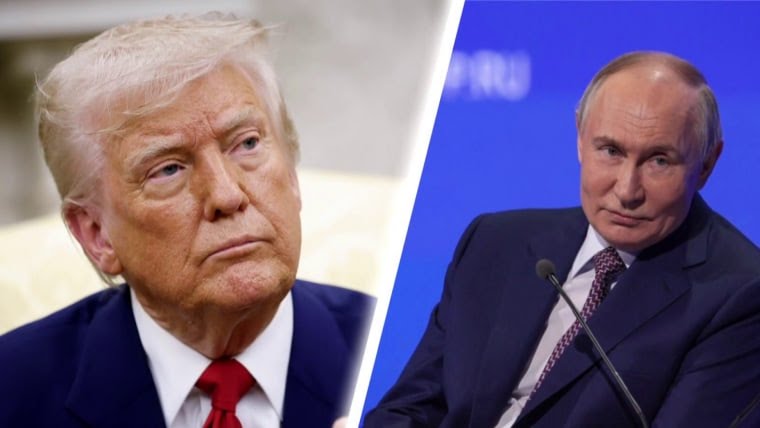Ukraine’s President, Volodymyr Zelenskyy, firmly rejected any idea of ceding Ukrainian territory to Russia, emphasizing that the country’s constitution clearly prohibits such actions.
His strong stance came after United States President, Donald Trump, hinted at a potential peace agreement involving the “swapping” of territories between Ukraine and Russia.
In a message posted on Telegram early Saturday, Zelenskyy declared, “No one will and no one can deviate from it. Ukrainians will not give their land to the occupier.”
His remarks followed Trump’s announcement on Truth Social about a scheduled meeting next Friday in Alaska with Russian President Vladimir Putin.
Details about the summit, including whether Zelenskyy would be involved, remain uncertain. Notably, Trump’s announcement made no mention of the Ukrainian leader.
At a White House briefing on Friday, Trump suggested that discussions about territorial exchanges as part of a ceasefire were underway.
“There’ll be some swapping of territories to the betterment of both,” he said, without providing specifics. Meanwhile, a White House official confirmed that Russia had submitted a list of demands for ending the war, and efforts were underway to gain support from Ukraine and its European partners.
Zelenskyy responded sharply, warning that any decisions made without Ukraine’s participation would be “decisions against peace” and would ultimately be ineffective.
Russia’s demands have included Ukraine relinquishing control over regions annexed by Moscow, Luhansk, Donetsk, Zaporizhzhia, Kherson, and Crimea and accepting permanent neutrality, including a ban on joining NATO.
However, Ukrainian officials have consistently refused to cede any illegally annexed territory and insist on security guarantees to prevent future aggression.
The exact nature of Trump’s “swapping” comment is unclear, whether it refers to formal territorial concessions or adjustments in areas currently controlled by both sides.
In the diplomatic arena, Zelenskyy held talks with British Prime Minister Keir Starmer and French President Emmanuel Macron, who reiterated support for a ceasefire.
Vice President JD Vance, currently visiting the UK, met with Foreign Secretary David Lammy and leaders from Ukraine and Europe to discuss possible paths toward peace, though details remain sparse.
According to a senior U.S. official, Ukrainian representatives shared ideas for a counterproposal to Russia’s ceasefire terms during recent discussions.
The meeting included high-level Ukrainian officials Andriy Yermak and Rustem Umerov, as well as U.K. and U.S. representatives. While security guarantees were a topic, NATO membership was reportedly not part of the conversation.
The upcoming Alaska summit will mark the first face-to-face meeting between Trump and Putin since the war began, highlighting a complex and fraught relationship between the two leaders.
During his presidency, Trump described Putin as a “strong and smart leader” and expressed personal rapport. Yet, despite early promises to resolve the conflict quickly, the war has persisted.
Trump also threatened to impose new sanctions and tariffs on Russia and its trading partners unless Putin agreed to end the fighting.
However, by Saturday morning, it was unclear if these measures would be implemented.
Experts caution that despite the meeting, fundamental issues remain unresolved. Peter Watkins of Chatham House in London noted, “For Russia, this isn’t just about territory. It’s about controlling Ukraine as a whole.” He suggested that while Trump may hope for a breakthrough, the summit is more likely to be a step in a prolonged process rather than a decisive peace agreement.
On the ground, the conflict continues unabated. Russian forces have been making gradual advances at a heavy cost, while Ukrainian cities face relentless bombardment.
Overnight, drone strikes hit a minibus in a Kherson suburb, killing two and injuring six, while Ukraine’s Air Force reported 47 drone attacks across multiple regions, 31 of which struck targets.
This evolving diplomatic effort in Alaska follows previous high-level talks held there, including the 2021 U.S.-China discussions in Anchorage, underscoring Alaska’s role as a venue for critical international negotiations.
